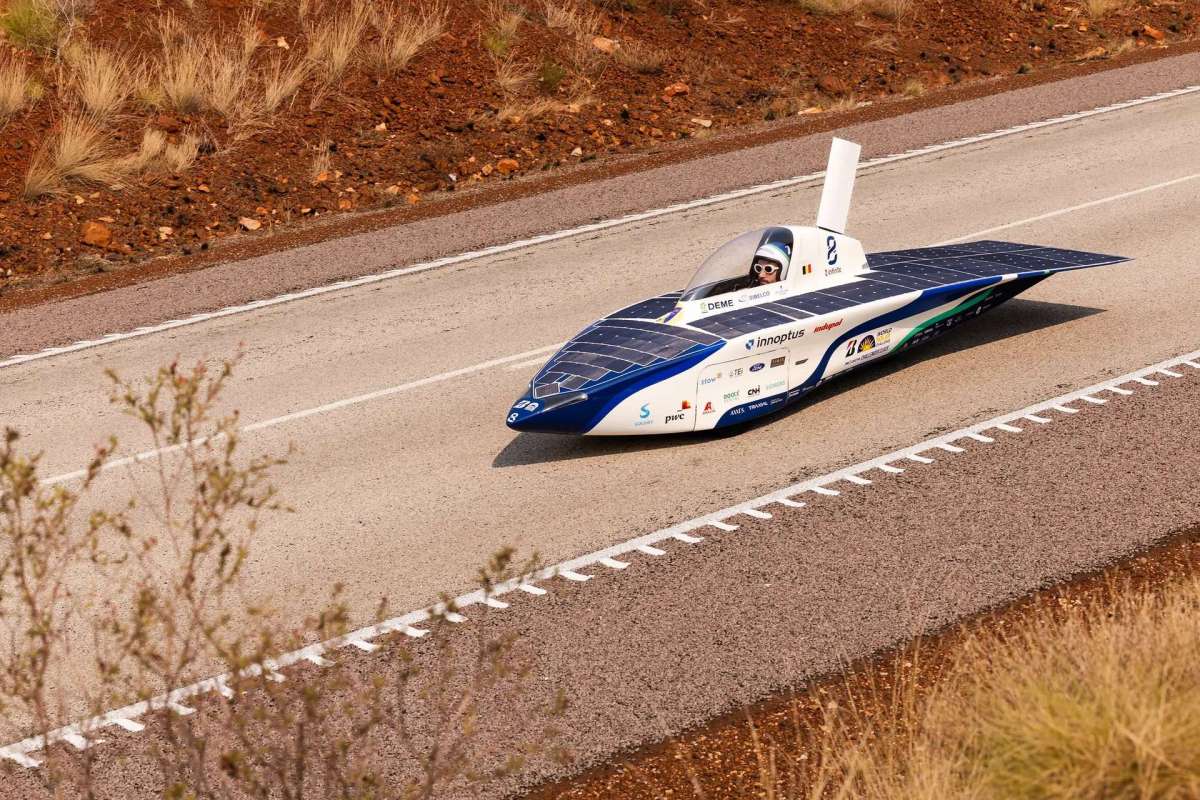After losing a year to the COVID-19 pandemic, the biennial Bridgestone World Solar Challenge returned this year, pitting innovative solar-powered vehicles against each other in a test of endurance and speed that spanned the continent of Australia, New Atlas reports.
The BWSC runs from Darwin, at the edge of Australia's Northern Territory, to Adelaide at the bottom of South Australia. It takes place over the course of a week, with the competing teams of engineers camping out along the route each night as they wait to compete in the morning.
This year's winner was the Belgian team Innoptus, competing in the Challenger class with its vehicle, Infinite. The team completed the course in a total of 34 hours, 4 minutes, and 41 seconds, beating the next competitor by more than 20 minutes and 2019's winning car by almost five.
"We arrived first in Adelaide and that is because we followed our own strategy for 3,000 kilometers," Cedric Verlinden, the team manager for Innoptus, told New Atlas. "We had to anticipate a number of elements: there were bushfires along the way which meant less incoming power, other things like clouds and the weather which was constantly changing but we were able to stick to our strategy and anticipate all the time and that ensures that we are now first across the line here in Adelaide."
Bushfires, in particular, were a complicating factor, with heavy smoke blocking out the sunlight that the competitors relied on to power their vehicles. The situation mirrored the recent fires and smoke pollution in the United States. With only a maximum of 4 square meters of solar panels to power each car, every ray of light counted.
The innovations developed for competitions like this one don't just stay on the racetrack. Solar-powered consumer vehicles are becoming a reality, and the more efficient and practical these systems get, the easier it will be for the average driver to get free miles without generating air pollution, all using solar energy.
This year, Infinite made the best use of the available light, in part due to the fin it used to maintain stability, New Atlas reports.
This is the second time in a row that a Belgian team has won the competition. Other competitors this year included students from Australia's Deakin University and Solar Team Twente from the Netherlands.
"Solar Team Twente definitely didn't make it easy for us," Pauline Vanvuchelen of Innoptus told New Atlas. "We really tried super hard until the end to stay minutes ahead and we succeeded. The fin was our secret weapon and we did super well with it."
Join our free newsletter for weekly updates on the coolest innovations improving our lives and saving our planet.









